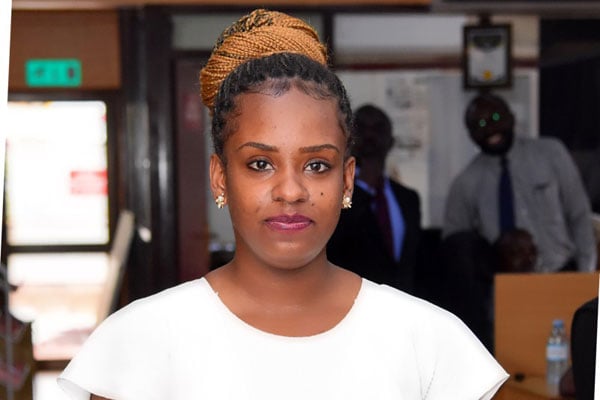Prime
Why Uganda’s Satellite is not yet fully operational

The Minister of Science, Technology and Innovation, Ms Monica Musenero, and the satellite engineers Mr Bonny Omara (left) and Mr Edgar Mujuni celebrate the launch of the Ugandan satellite into space at Kololo Independence Grounds on November 7, 2022. PHOTO / ABUBAKER LUBOWA
What you need to know:
- During the launch of the satellite, the Minister of Science, Technology and Innovation, Dr Monica Musenero, said Uganda has previously had to rely on satellite data from other countries which is sometimes inaccurate and expensive.
Uganda launched its first satellite PearlAfricaSat-1 on November 7 last year with the help of the National Aeronautics and Space Administration (NASA), however, it is not yet operating at its full capacity.
This means that Uganda is still missing out on certain benefits at the moment for example the weather predictions and climate change.
READ:
Mr Bonny Omara, one of the engineers involved in the development of the satellite, said there are components of the satellite that are still under development.
“We are supposed to develop other systems on the ground to facilitate the satellite that we launched and we are in the process of doing so. We are developing grand sensor terminals that will help with the weather predictions and information on climate change,” he said.
He added: “We expect to have finished this before the rainy season begins and the target is to have them up and running by April.”
When queried on what exactly the satellite’s capabilities were at the moment, he confirmed that there was research and mapping ongoing.
“Of course the satellite is doing something, at the moment it is doing mapping of various soil according to type and classification. So we are able to tell that land in a particular area is suitable for the growth of a particular crop. We also have the entire map of the country right now,” he said.
He declined to comment on the amount of money required to bring the satellite to full functional capacity, saying that was the preserve of the government.
Mr Cosmas Mwikirize, the Superintendent Industrial Value Chains at the Ministry of Science, Technology and Innovation, explained that the satellite is still in its testing stages but is up and running.
“The satellite is still in what we call the testing phase, when you put a satellite in space. It takes time to test it, it was launched from a ground station and we are also setting up a command and control centre in Mpooma, which will be the main ground for controlling the satellite,” he said by telephone yesterday.
According to the draft budget, Shs15.6b is to be used in the establishment of this ground station, however, despite it not being functional, Mr Omara said the satellite is still able to receive scheduled operations through the ground station in Japan.
Mr Abubaker Waswa, the head of department of electrical and computer engineering at Makerere University, also told this publication that the satellite lacks certain features that enable the collection of data on issues like climate change, for example the current heatwave.
“The satellite is up and running, however, while we have the platform to collect all this information, we just need additions like sensors to capture images and, therefore, collect data on climate change,” he said.
Mr Waswa, however, noted that the necessary upgrades needed for the satellite to be able to capture climate change information are held up due to lack of funds which falls back on the Ministry of Science, Technology and Innovation.
During the launch of the satellite, the Minister of Science, Technology and Innovation, Dr Monica Musenero, said Uganda has previously had to rely on satellite data from other countries which is sometimes inaccurate and expensive.
In 2019, the government had to contract Spanish company, Xcalibur, to carry out the Geophysical Survey and Geological mapping of Karamoja at a tune of €20.6million [approximately Shs80b] borrowed from the Corporate Internationalization Fund of Spain.
Mr Omara said now that Uganda has a satellite, such expenses will no longer be necessary.




